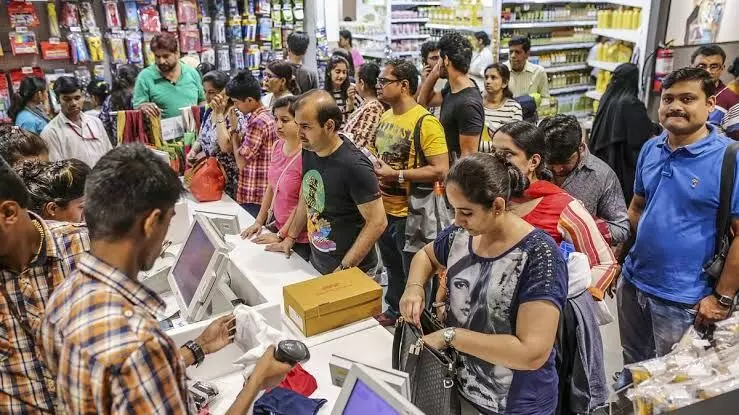
India's household expenses to shoot up due to Russia-Ukraine war
text_fieldsRussia-Ukraine war has impacted household expenses 'hugely' in India, with many companies pressured into considering another round of price hikes to offset an unprecedented rise in commodity prices.
As per reports, the price of crude oil and a broad range of commodities have risen since Russia attacked Ukraine on supply worries.
Crude oil prices have risen sharply to above $100 a barrel, and FMCG firms predict a further rise in wheat, edible oil, and crude costs.
As per reports, companies such as Dabur and Parle are watching the situation and will undertake calibrated price increases to offset those inflationary pressures.
India's inflation pressures were already rising even before Russia invaded Ukraine on February 24. Indeed, retail inflation for February rose above the Reserve Bank of India's upper-end target range of 2-6 per cent for the second straight month.
That was even before the impact of the Ukraine conflict had begun and did not consider a sharp rise in international oil costs.
According to some media reports, makers such as Hindustan Unilever (HUL) and Nestle have increased the prices of food products last week.
Parle Products Senior Category Head Mayank Shah told PTI that the company is expecting a 10-15 per cent hike by the industry.
He further noted that the prices are witnessing high fluctuation, and hence it would be difficult to tell about the same increase due to the volatility of the price.
The price of palm oil increased to ₹ 180 per litre and has come down to ₹ 150 per litre. Similarly, he added that crude oil prices had risen to nearly $140 a barrel and have now slipped $100 per barrel.
"However, it is still higher than what it was earlier," Mr Shah said, adding that the companies are also hesitant in taking price increases significantly because demand was reviving after COVID. They do not want to tinker with that.
When asked whether Parle would also go for a hike, Shah said right now it has enough stock of packaging materials and other stocks and would take a decision after a month or two on this.
While expressing similar thoughts, Dabur India Chief Financial Officer Ankush Jain said inflation remains unabated and is a cause of concern for the second year.
"The inflationary pressures and resultant price increases have led to consumers tightening their purse-strings and relooking at discretionary purchases, while also downgrading to smaller packs. We are closely watching the situation and will undertake calibrated price increases to mitigate the inflationary pressures," he said.
According to some news reports, FMCG major HUL and Nestle have increased the prices of food items such as tea, coffee and noodles, passing off some burden to the consumers to maintain margins.
The reports had claimed that HUL had hiked prices of Bru coffee, Brooke Bond tea etc., as the company was facing inflationary pressure.
While Nestle India has increased the price of its famous Maggi noodles by 9 to 16 per cent, it has also taken a price hike for milk and coffee powder, the reports added.























